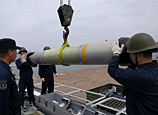
SEEKING AID
According to a survey by Baobeihuijia.com, China's largest non-governmental website dedicated to bringing abducted children home, 90 percent of young victims were kidnapped as a result of the negligence of their caretakers, and 50 percent of abducted children came from rural families in which at least one parent was working in a faraway city.
"Most children were abducted between the ages of 3 and 6 and brought home at 8, 10 or even older," said Zhou Jian, a counselor with the psychological society of Guangxi.
"They had very faint memories of their biological parents, and when they were brought back, they had reached an age of juvenile defiance. Their crises would be worse if they were forced to adapt to a totally new environment where living conditions were worse than what their foster parents could offer."
Under such circumstances, it is extremely important for their parents to enhance their family cohesion and restore a sense of intimacy with the children, "preferably with the help of professional psychologists".
However, many of these families are stuck in remote mountain regions and can neither access, nor afford, the much-needed counseling services.
"Some non-governmental organizations have launched aid programs to help these families, but government coordination is essential for visiting all abducted children and resolving their psychological handicaps," said Meng Zhan, an official in charge of the protection of minors in Guangxi's Hechi City.
Meanwhile, it is crucial for parents to offer their returned children a sense of security, said Prof. Zhou Xiaozheng of Renmin University of China in Beijing.
"After their children's return, parents tend to be overly sensitive and issue strict rules, fearing their children might be abducted again," said Zhou. "But parents need to be more rational by helping children to be sociable and independent."
The children will only feel safer if they are living happily in a loving environment, he said.

















 Modern movie dream in retro Mingguo street
Modern movie dream in retro Mingguo street


![]()
